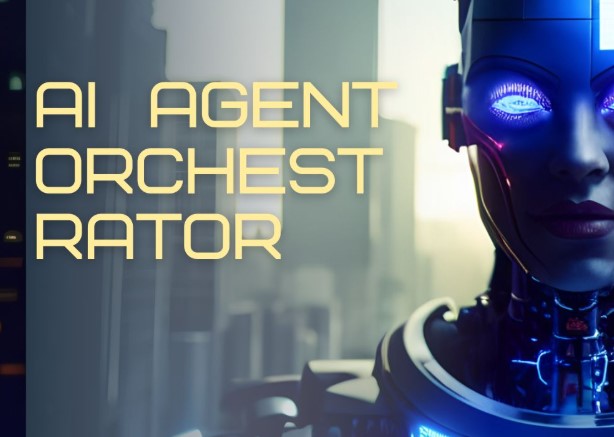Imagine having a team of smart robots that help you finish work faster—like answering emails, managing files, or solving tough problems. Sounds cool, right? But here’s the twist: each robot is really good at just one job. So, how do you get them to work together?
That’s where an AI agent orchestrator comes in!
Think of it like a conductor in an orchestra. The conductor doesn’t play instruments, but makes sure all musicians work in harmony. In the same way, an AI agent orchestrator guides different AI agents to work together smoothly.
In this post, we’ll explore what an AI agent orchestrator is, how it works, why it matters, and how it helps people and businesses every day.
What Is an AI Agent Orchestrator?
An AI agent orchestrator is a special kind of software that tells multiple AI agents what to do, when to do it, and how to talk to each other. Each agent is like a tiny helper trained for one job—such as searching the internet, writing emails, or reading documents.
The orchestrator makes sure these helpers don’t bump into each other or waste time. It helps them work together like a well-trained team.
For example:
- One AI agent finds data online.
- Another reads and sorts the data.
- A third one writes a short report from that data.
All of this happens in seconds—thanks to the orchestrator.
Real-Life Example
Let’s say a company wants to launch a new product. An orchestrator can:
- Ask one agent to study customer reviews.
- Have another agent create a report.
- Then send that report to a designer to build a new product idea.
That’s teamwork powered by AI!
How Does It Work?
At the heart of every AI agent orchestrator is a workflow engine. This engine follows a set of rules (like a checklist) and sends commands to the right agent at the right time.
Main parts of an orchestrator:
- Input Handler: Listens to the user’s request.
- Task Manager: Decides which agent does what.
- Communication Layer: Helps agents talk to each other.
- Memory: Keeps track of what’s already been done.
- Output Generator: Gives the final result back to the user.
It’s like a smart boss that knows who’s best for each task.
Source:
According to a 2024 report by Gartner, 70% of businesses using AI agent orchestration saw faster results and fewer errors in daily operations.
Why Is It So Useful?
1. Saves Time
AI agent orchestrators let companies finish jobs in minutes—not hours. No more switching between apps or doing the same steps again and again.
2. Reduces Mistakes
Humans can forget things. AI agents don’t—especially when an orchestrator keeps them on track.
3. Works 24/7
Orchestrators don’t sleep. They can run your team of agents all day and night without a coffee break!
4. Boosts Creativity
When AI handles boring stuff, humans can focus on big ideas—like writing stories, designing products, or building new businesses.
Who Uses AI Agent Orchestrators?
You don’t need to be a big tech company to use one. Many people and businesses already use them—often without knowing it!
- Startups use them to manage customer chats and emails.
- Doctors use them to organize patient records and appointment notes.
- Teachers use them to check homework and give feedback.
- Developers use them to build apps faster.
🌍 Example: UCL.Dev Tools
Platforms like UCL.dev offer tools that support AI agents and orchestrators. Developers can easily create custom workflows to automate their tasks without writing a lot of code.
How Is It Different from APIs or Automation Tools?
You might wonder: Isn’t this just like Zapier or APIs?
Not quite!
- APIs connect one app to another.
- Automation tools run fixed tasks like “If X happens, then do Y.”
But AI agent orchestrators go further:
- They think.
- They choose the best path.
- They adjust if something changes.
In short, they’re smarter and more flexible.
What Does the Future Hold?
Experts believe that AI agent orchestrators will be a must-have for every business by 2030. As more tasks become digital, having an AI team working together will be the norm—not the exception.
Stat to Know:
According to McKinsey, companies using advanced AI automation have increased productivity by up to 40% compared to those who don’t.
Summary: Why It Matters
Let’s recap:
✅ An AI agent orchestrator is like a smart team manager for AI agents.
✅ It helps agents work together to get tasks done faster and better.
✅ Businesses, teachers, and even solo creators can use it.
✅ It saves time, reduces errors, and boosts creativity.
✅ Tools like UCL.dev make it easy to build with orchestrators today.
Call to Action: Want to Get Started?
AI agent orchestrators are not just for tech wizards. Anyone can use them to save time and do more. Whether you’re a student, business owner, or developer—there’s a tool out there for you.
👉 Contact us today to learn how to build your first AI agent workflow in minutes!
Let smart agents do the boring stuff—so you can focus on what matters most.
🔍 FAQs About AI Agent Orchestrators
1. What is the main job of an AI agent orchestrator?
It helps multiple AI agents work together to complete tasks in the right order and without mistakes.
2. Do I need coding skills to use one?
Not always! Platforms like UCL.dev offer low-code tools so anyone can build workflows.
3. How is it different from automation tools like Zapier?
Zapier follows simple rules. Orchestrators use AI to make smart choices based on what’s happening in real time.
4. Can small businesses use AI orchestrators?
Yes! Many small teams use orchestrators to manage emails, social media, and customer service.
5. Is it safe to use AI orchestrators with private data?
If you use trusted platforms with secure designs, yes. Always check their privacy policy and use strong access controls.

